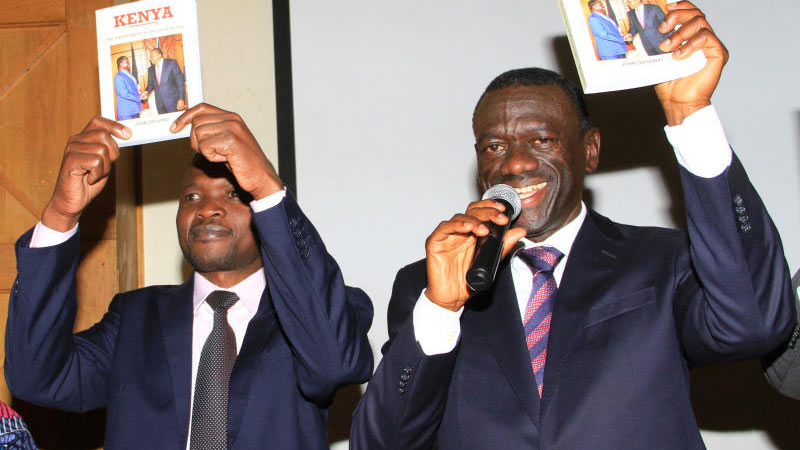
The sizeable crowd in the room gave him a long applause and a standing ovation when he finished his address. Ugandan opposition leader, Kizza Besigye, was speaking in Nairobi during the launch of the book by John Onyando, Kenya: The Failed Quest for Electoral Justice.
While, over the years, Ugandan President Yoweri Museveni often gets a chance to speak in Kenya, this was the first public speaking in Kenya for Besigye, who has become Museveni’s main political challenger. This fact shows how marginalised Besigye remains and how difficult it remains for him to take charge of his own image outside the borders of his country.